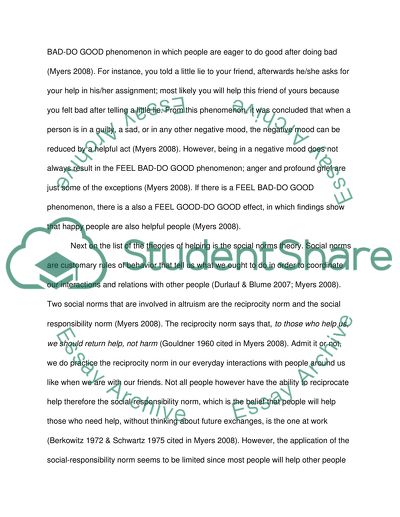Cite this document
(“Altruism Essay Example | Topics and Well Written Essays - 1000 words”, n.d.)
Retrieved from https://studentshare.org/psychology/1503314-altruism
Retrieved from https://studentshare.org/psychology/1503314-altruism
(Altruism Essay Example | Topics and Well Written Essays - 1000 Words)
https://studentshare.org/psychology/1503314-altruism.
https://studentshare.org/psychology/1503314-altruism.
“Altruism Essay Example | Topics and Well Written Essays - 1000 Words”, n.d. https://studentshare.org/psychology/1503314-altruism.


